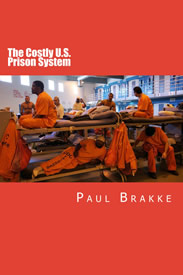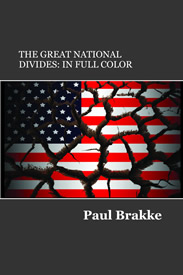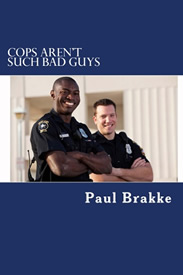FOR IMMEDIATE RELEASE
The immigration mess at the U.S. Southern Border has become even more critical, as more and more refugees from Central America pour in and seek alternate and riskier means of getting into the U.S. At last count, about 144,000 migrants have ended up in custody in May by the U.S. Customs and Border Protection, a 32% increase from April and the highest number of apprehensions on the southern border in 13 years. This number even includes 55,000 children.

So what can we do about this crisis?
On the one hand, the media and liberal politicians play up the humanitarian crisis and point out that the immigrants are fleeing from economic turmoil, gang violence and the threat of death in their home country, especially in El Salvador, Guatemala, and Honduras, the source of most of the immigrants. They point to the law dating from the end of World War II that under asylum law, destination countries are supposed to take them in.
But on the other hand, as criminal justice expert, Paul Brakke, publisher of American Leadership Books points out, this law was written many decades ago before the modern explosion of immigration — most recently including 71 million refugees around the world and rising.
Thus, as Brakke points out, in creating his program to deal with the immigration crisis in a practical cost-effective way, the U.S. and other countries are being overwhelmed with immigrants and cannot take them all in, even if they have valid claims. Yes, some of the images of refugees dying in camps or trying to cross rivers to get to America can be heart-breaking, but that still doesn’t overcome the reality that letting in many thousands of immigrants would undermine many American institutions.
In response, Brakke has come up with a series of suggestions, outlined in a white paper “Dealing with Immigration” and a series of 6-10 minute videos based on it that deftly lay out the scope of the immigration problem and offer solutions. It is a program that Brakke has been providing to Homeland Security officials, politicians, educators, and the Trump administration.
In Brakke’s view, the goal is to ease the burden on Americans and find a humanitarian way to help the migrants. To this end, some of his suggestions include:
– The migrants should be encouraged to stay in Mexico or return to their home countries as much as possible.
– The U.S. should even subsidize any Mexican initiatives to accept the migrants.
– The U.S. should have a better visa tracking system to keep track of immigrants with visas, since about 40% overstay their visas.
– The U.S. should combine the wall with cameras, sensors, drones and beefed up border patrols to reduce the number of immigrants so that the Border Patrol can focus on keeping out the more dangerous and violent people.
In making these observations and recommendations for resolving the border mess in America, Brakke has drawn on more than five years of research on the U.S. criminal justice system and divisions in America society, and he has written about the immigration issue Dealing with Illegal Immigration and the Opioid Crisis and chapters in Crime in America and in Uncertain Justice. He offers a unique conservative approach to crime, criminal justice, and American society, based on applying an economic business model.
The goal is to do what works most efficiently to reduce costs and create more productive citizens.
The videos for his program are available on the American Leadership Books’ YouTube channel at https://www.youtube.com/channel/UCfHgXXiW3jgODnaypgcYZFw
The whole program of videos, PowerPoints, and white papers will be available on the American Leadership Books’ website in July.
To learn more, you can get a copy of Crime in America, Uncertain Justice, or Dealing with Illegal Immigration and the Opioid Crisis. The books are available through Amazon, Kindle, and major bookstores. Also, free copies are available for government officials and politicians who are seeking ways to reduce the divisions in American society https://crimeinamericathebook.com.
Review copies are also available for high school and college teachers who might want to use these books and presentation materials in their classes. Members of the media can obtain information there, too.
For copies of the book, more information on American Leadership Books and Paul Brakke, and to set up interviews, please contact:




